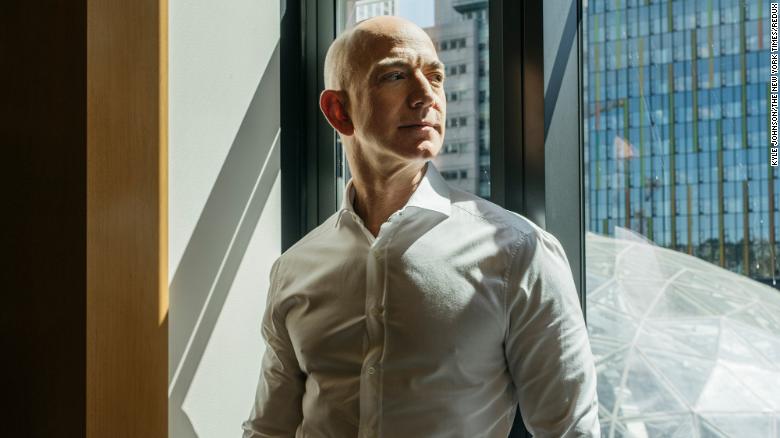Amazon founder Jeff Bezos will present his CEO title to Andy Jassy on Monday, ending a career spanning more than two decades at the helm of a company that grew from an online bookstore to a global retail giant, logistics and the Internet with a value of 1.75 trillion dollars.
The company announced in February that Bezos would move from CEO to CEO, because he wanted to spend more time with his other companies, including The Washington Post, the space company Blue Origin and philanthropy.
But even as he moves into a less public role at the company, Bezos will continue to have tremendous influence at Amazon (AMZN) for years to come, by virtue of being its largest individual shareholder, a mentor to the incoming CEO, and his role at the helm of board.
“He will likely remain involved, although he will no longer focus on the day-to-day and instead may focus on company-wide initiatives and new products and services,” said Daniel Elman, global technology analyst at the market research firm Nucleus Research.
“His abilities to get through the noise by identifying high-value opportunities cannot be underestimated, so it would make sense for Amazon to free him from the operational routine to maximize those areas.”
Bezos’s departure as CEO comes at a critical time for Amazon. The pandemic created a massive demand for their services, causing an increase in profits and hiring. But the company’s explosive growth has only raised the attention of regulators, some of whom believe it has gotten too big.
Not having the richest man on Earth at the helm of the company could help it weather better some of that scrutiny. And stepping aside could also help insulate Bezos from some criticism from lawmakers.
Amazon has also recently faced criticism for its treatment of workers in its warehouses, something Bezos has vowed to address as CEO.
“Bezos should stop being the lightning rod” on Amazon’s labor practices issue, said William Klepper, a management professor at Columbia Business School, “and instead innovate to get out of this”.
The timing of Bezos’ transition in many ways mirrors that of other Silicon Valley founders, for whom giving up the CEO title meant losing much of the spotlight, but not necessarily all the power.
Google’s co-founders, for example, lost their executive titles in 2019 amid increasing regulatory scrutiny of the company, but they remain on the board and have a special class of stock that gives them voting control as shareholders.
Bezos doesn’t have the same voting power, but he’s still Amazon’s largest shareholder by a large margin. Until last month, it owned 51.2 million shares, or about 10%, of Amazon’s common stock, far more than the next largest shareholder, Vanguard Group, which owns about 6.5%.
That means that if a shareholder initiative seeks to make a major change to the company, Bezos’ voting power could give him some influence on the outcome, Bailey said.
Bezos will almost certainly continue to get the attention of incoming CEO Jassy. The two have worked closely together since the inception of the company.
In the early 2000s, Jassy spent time in a position known at the time as Bezos’s “shadow,” a role similar to that of a corporate chief of staff, which was designed to train promising young executives.
If there’s a clear blueprint for what Bezos’ role change at Amazon might look like, it could be the other founder of a Seattle-based tech firm that previously held the title of richest man in the world.
When Bill Gates resigned as CEO in 2000, Microsoft was one of the most powerful companies in the world, but it was also in the middle of a long antitrust battle and faced the possibility of being dissolved by the US government.
At the time, Gates was seen as a ruthless monopolist, but his focus on philanthropy in the years that followed helped him cultivate a different reputation as a global benefactor, all while maintaining a leadership role at Microsoft (MSFT) for two decades, until last year.

